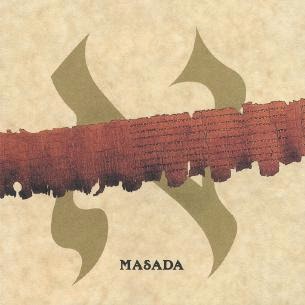Shortly after his third and final album for Verve
Records, Chris Botti was invited to join Sting for a three year world tour that
would eventually end in the autumn of 2001. A hugely successful tour, both financially
and critically, and being allowed a generously sized solo spot every night,
Botti himself was able to win over many new admirers with this new added, and
very welcome, exposure.
At the start of summer in 2001, the tour took a ten
week hiatus and Botti took the opportunity to rent a house in the Hollywood
hills, assembling a band, some from Stings own touring band (including producer
and keyboard player Kipper), with the intention of writing and recording
completely new material for a fourth solo album – his debut for Columbia
Records. Deciding on the direction and feel he wanted this record to take,
Botti chose to work reversed hours - sleeping in the afternoon, writing in the
evening, and playing and recording at night right until the sun came up.
Beginning with the languid and soulful acoustic guitar
work of long-term Sting sideman Dominic Miller, ‘Lisa’ gets things off to a
great start, showing the way forward for the rest of the album - a late-night
album, something to listen to on balmy summer nights and take in whilst nursing
a cold drink.
If ‘Lisa’ is a more smokily evocative affair, then ‘Miami
Overnight’ that follows immediately after, is a more relaxed one – albeit one
that perfectly carries the mood. Things then get funky with the radio-friendly
sounding ‘Streets Ahead’, containing not only a winning trumpet line, but also
some stellar bass work from none other than Christian McBride.
In truth, the album contains songs that fall into one
of these three catagories; the smokey night time haze, the more relaxed dare I
say it ‘chill’, and the more ‘up’ tracks. All of these pieces combine, in their
perfectly sequenced manner, to make an album that feels very much complete –
always maintaining its superb atmosphere, without ever falling too far into the
chill zone.
‘When I See You’ is perhaps the track most deserving
of becoming a breakout hit, featuring as it does a truly great chorus melody,
something the penultimate ‘Through An Open Window’, with it funk guitars and
stabbing trumpet blasts, also possesses. Perfectly counter-balancing these are
pieces like the ambient ballad feel of ‘Light The Stars’ and closing number
‘Easter Parade’ with its subtle and quietly romantic light-as-a-feather trumpet
line.
As well as acting as sometime employer and occasional
singer for hire to Botti, Sting here donates ‘All Would Envy’ for Shawn Colvin,
who in turn adds her own flavour to the song, with just a slight Brazillian
twist. And unlike other vocal tracks which are often used to break up an
otherwise instrumental album, this does not break up the mood or stand out
awkwardly. Instead it complements the rest of the music, and enhances what goes
before it and what it preceeds. Similarly, ‘You Move Me’ is a slow and
languorous sensual piece that benefits greatly from Camilles seductive breathy
voice that slowly moves its way from the background into the fore.
The big surprise with ‘Night Sessions’ is just how big
a step up the whole album is from Bottis earlier work. The song-writing is in a
much higher league than before, the production by Kipper is first-rate, but
subtle, Bottis playing and tone are still as good as ever, but better utilised
and melded in with his excellent backing band - most of all though, the whole
album gels in a way that perhaps his first albums didn’t. Each of the twelve tracks
here is a gem; there is no flab or halfway piece that should maybe never have
seen the recording studio. And just as importantly the album is sequenced in a
way to get the best out of each track and help provide a more complete
atmosphere to the record.
‘Night Sessions’ is an excellent album, with a great
sense of pace and feeling. Head and shoulders above anything he had recorded
previously, it is in effect the beginning of the second wave of Bottis career –
some will still regardless tag Botti as smooth, and in essence he may still be,
but here he really truly shines in a way that defies that much derided genre.
****



















